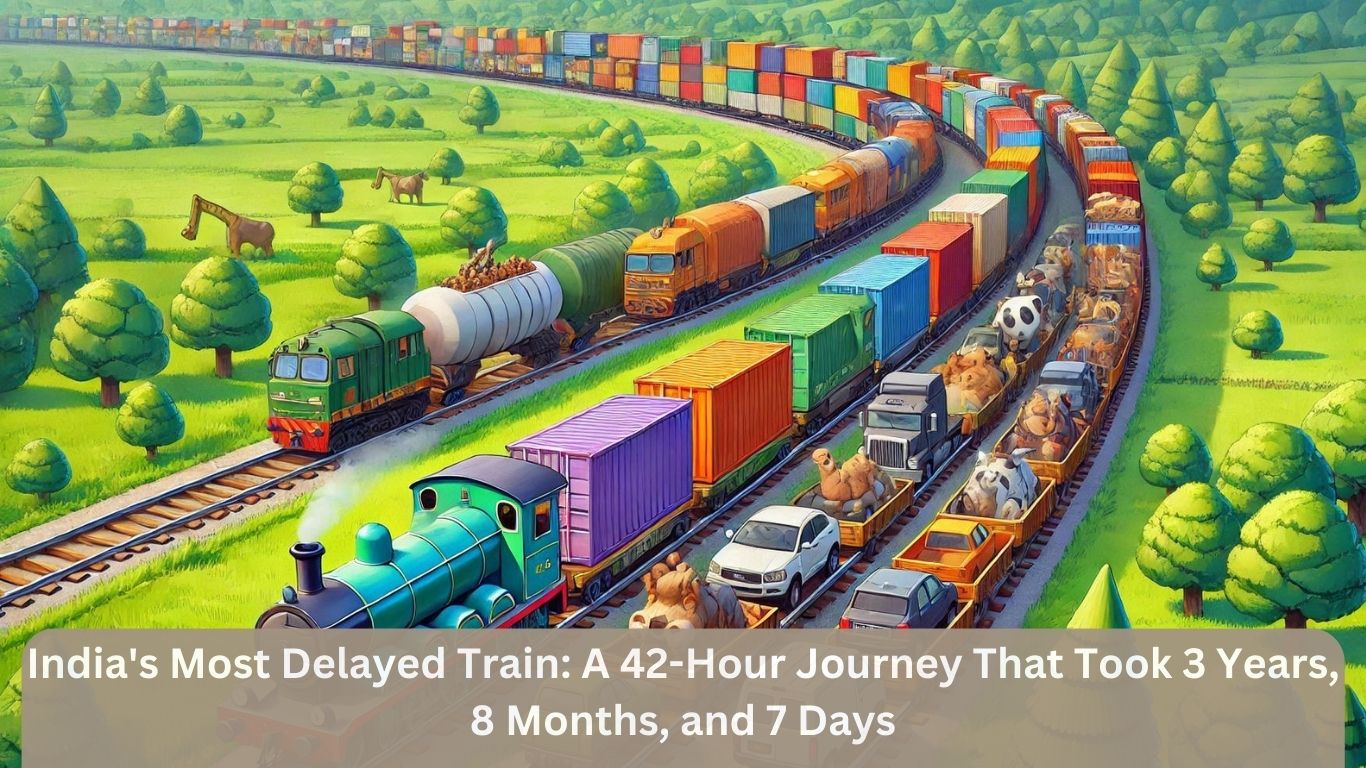Train delays are common in India, especially during winter when journeys are often extended by 12 to 24 hours due to weather conditions. However, no delay comes close to what is officially India’s most delayed train—a goods train that took 3 years, 8 months, and 7 days to complete a journey that was originally scheduled to last just 42 hours.
The Incident: From Visakhapatnam to Basti
The unusual delay occurred in 2014, involving a goods train transporting diammonium phosphate (DAP) fertilizer. The train departed from Visakhapatnam in Andhra Pradesh on November 10, 2014, and was destined for Basti in Uttar Pradesh.
- Cargo: 1,316 sacks of DAP fertilizer valued at ₹14 lakh.
- Purpose: The shipment was ordered by Ramchandra Gupta, a businessman in Basti, for his agricultural business.
Despite departing on time, the train mysteriously failed to arrive at its destination.
The Investigation: A Train Gone Missing
After months of unanswered complaints from the businessman, authorities launched an investigation into the missing train. It was revealed that the train had been misdirected during its journey.
The Reasons Behind the Delay
- The train was left idle in a yard because one of its bogies or coaches was reportedly deemed unfit for travel.
- Due to administrative lapses, the train remained abandoned for an extended period without any follow-up.
The Arrival: 3 Years Later
The train finally reached Basti station on July 25, 2018, more than 3 years and 8 months after it departed. Unfortunately, by the time it arrived, the fertilizer cargo was completely ruined, rendering it useless for its intended purpose.
This bizarre incident stands as a record for the longest delay in Indian railway history. It highlights issues in logistics management, communication, and accountability within the rail network. While delays are common, this extraordinary case remains a reminder of the challenges faced by one of the world’s largest rail networks.















